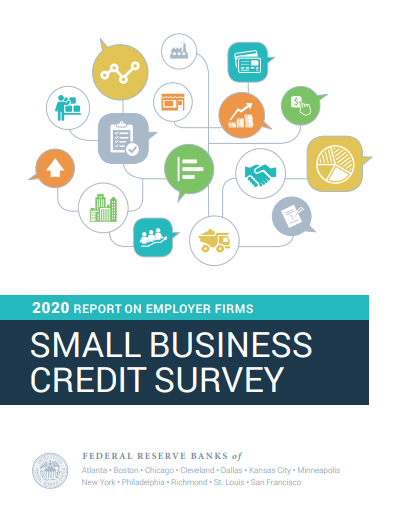Brendan Garrett was a Reporter at deBanked. Articles by Brendan Garrett
Lendio Facilitated More Than 4% of All PPP Transactions
April 21, 2020 Lendio processed $5.7 billion of the $342 billion funded to businesses through the Paycheck Protection Program. With this amount going to just over 70,000 business owners, the Utah company facilitated 4.2% of the total 1.66 million deals through its platform.
Lendio processed $5.7 billion of the $342 billion funded to businesses through the Paycheck Protection Program. With this amount going to just over 70,000 business owners, the Utah company facilitated 4.2% of the total 1.66 million deals through its platform.
“The last few weeks have been an all-out brawl, from solving technical issues to deciphering legislation to managing expectations to dealing with incredible frustration,” Lendio CEO Brock Blake wrote in a recent Forbes article. “In this unprecedented time of crisis and need, there is nothing I would rather be doing than helping small business owners. My co-founder and I started a business on the idea that fueling small businesses fuels the American dream. Now the focus is on saving it.”
While not a direct lender, Lendio utilizes its platform to connect businesses owners with those lenders authorized by the SBA who can provide them with PPP money.
With the national average loan size of PPP money being $206,000, Lendio undercut this amount, instead having an average loan amount of less than $100,000. And with 28 million small businesses in the country, Blake is hoping to continue facilitating loans through this model of high quantity, smaller loan deals once more money is allocated to the program. Joining the chorus that is calling for additional PPP funds, Blake suggests that it could take nearly $850 billion in total to allow American small businesses to weather covid-19, as well as a rethinking of the program so that money can be moved quicker.
“There’s a lot we have learned over the past two weeks as a nation, as an industry, and as business owners. It’s important to take a closer look at the good, the bad, and the ugly of the Paycheck Protection Program, and most importantly, what needs to be done next … Much of the reason why I have been so vocal about the participation of fintech lenders is due to the fact that these lenders’ super power is processing smaller loan amounts at a higher volume. Community banks, on the other hand, specialize in processing large amounts at a lower volume; this is not what Main Street needs right now.
“The fact that fintech and non-bank lenders have been approved to participate in the distribution of PPP loans will make a world of difference if and when more funds are appropriated. Small businesses would have benefited more had these lenders been approved earlier in the process (most of them weren’t approved until the money had actually run out), but they can take heart knowing that more high-tech options will be available in the next phase.”
Online Lenders Are Waiting On The Bench For The PPP To Be Refreshed
April 16, 2020 This week proved mixed for many fintech and non-bank lenders who received approval from the SBA to issue Paycheck Protection Program funds, only for the $349 billion allotted to the program to run dry almost immediately afterwards.
This week proved mixed for many fintech and non-bank lenders who received approval from the SBA to issue Paycheck Protection Program funds, only for the $349 billion allotted to the program to run dry almost immediately afterwards.
On Wednesday evening Senator Marco Rubio tweeted that the funds would run short, leaving at least 700,000 small businesses who applied in purgatory without PPP financing. But more money may be made available, as Treasury Secretary Steven Mnuchin said in a statement on Wednesday that “We urge Congress to appropriate additional funds for the Paycheck Protection Program – a critical and overwhelmingly bipartisan program – at which point we will once again be able to process loan applications, issue loan numbers, and protect millions more paychecks.”
BlueVine, OnDeck, Funding Circle, PayPal, Intuit, and Square were among the group of non-bank lenders who were recently approved. While unfortunately late to the party, these businesses will be well-positioned to quickly roll out funding once further PPP money is allocated.
“Millions of small businesses need relief more than ever right now, and providing that relief quickly and diligently is our top priority,” BlueVine CEO Eyal Lifshitz told deBanked. “While most PPP lenders have limited their efforts to existing customers, our aim is to support and protect all small businesses. Using our data and engineering resources, we want to ensure both existing customers and other small businesses seeking relief, are aware of and have access to PPP loans. We will remain a trusted advisor to small businesses and work to get fast capital solutions to those in need.”
Lifshitz’s comment echoes concerns that have plagued the SBA since the announcement of these funds: that its systems, and the processes of the banks it works with to issue this money, are outdated and insufficient to face a financial crisis of this magnitude and speed. Now weeks into the program, businesses are reporting a lack of communication from both their bank and the SBA; and, most importantly for many, no PPP funds in their accounts.
Clearbanc Launches Runway in Response to Covid-19
April 16, 2020 This month Clearbanc announced its latest product, Runway, in response to the impact of the novel coronavirus. Having historically served the needs of those businesses that are seeking funds for digital marketing, with Runway Clearbanc is expanding into capital for more generalized purposes in the face of covid-19.
This month Clearbanc announced its latest product, Runway, in response to the impact of the novel coronavirus. Having historically served the needs of those businesses that are seeking funds for digital marketing, with Runway Clearbanc is expanding into capital for more generalized purposes in the face of covid-19.
“All companies are concerned about one thing and that thing is runway: ‘how many months do I have left and how do we extend that?’ Clearbanc CEO Michele Romanow explained. “So we built this really cool product, where you can give us a little bit of information and we can show you how much runway you have today at your current economics, and then how much we could extend that runway.”
Open to e-commerce, D2C, and enterprise SaaS businesses, Runway has already begun issuing funds. Amounts begin at $10,000 and can run up to $10 million, with monthly cash injections being an option if Clearbanc deems it suitable. Fees range from 6-12% and funding is equity-free.
“These is no playbook for the current economic crisis and recovery, and every founder needs more insight and options to navigate this incredibly difficult time. In addition, venture capital is even harder to come by. Capital is the most important tool to sustain and grow a business, and is now needed more than ever.”

Small Business Credit Survey Proves Itself to Be a Blast From the Past
April 15, 2020 Over a month into a nationwide lockdown and it can prove hard to remember what things were like before this. The ease of going to a restaurant and sitting in, the buzz of attending a packed concert, or even the unappreciated experience of not having to maintain six feet between yourself and whoever is beside you.
Over a month into a nationwide lockdown and it can prove hard to remember what things were like before this. The ease of going to a restaurant and sitting in, the buzz of attending a packed concert, or even the unappreciated experience of not having to maintain six feet between yourself and whoever is beside you.
As well as these small joys, for many small business owners the prospect of growth is a memory, as the latest Federal Reserve Small Business Credit Survey highlights. Released in March, the report is a summary of how small business owners acted and felt towards credit in 2019, as well as how they viewed their future in 2020.
While that’s certainly a grim reminder, the report featured an interesting question which appears prescient in the wake of the impacts of covid-19. “What actions would your business take in response to a 2-month revenue loss” was put to the 5,514 respondents, which were composed of owners of businesses that employed between 1 and 499 employees (coincidentally the same range for PPP loan eligibility). And the answers highlight the extent of the trouble which many small business owners currently find themselves in.
33% said they would lay off employees, 34% reported that they would rely on debt, and just 37% stated that they would reduce salaries of the owner(s) or employees. As well as these hypothetical decisions, 17% of respondents said they would shut down and 47% noted that they would use the owner’s personal funds to ride out the storm, worrying numbers given the current situation.
And while these responses prove eerie in light of what was to come, other answers reflect the optimism that 2019 yielded. 69% of firms expected revenue to increase in 2020, 44% expected their number of employees to grow, and 56% reported revenue growth on from 2018.
Outdated as the report is, it acts as an artifact of sorts: reminding the industry of what can come before the fall, and how even when things are good, many businesses are a few steps removed from serious trouble.
Facebook Announces $100M Small Business Grant Program
April 13, 2020 Earlier this month Facebook announced that it will begin rolling out its small business grant program across the world to provide relief for companies affected by the coronavirus. Totaling $100 million in value, the program will provide funding to small businesses in over 30 countries via grants that are mostly cash, but will also include Facebook ad credits. The news comes one month after the tech giant launched its Business Hub.
Earlier this month Facebook announced that it will begin rolling out its small business grant program across the world to provide relief for companies affected by the coronavirus. Totaling $100 million in value, the program will provide funding to small businesses in over 30 countries via grants that are mostly cash, but will also include Facebook ad credits. The news comes one month after the tech giant launched its Business Hub.
$40 million of this will be allocated to 10,000 American small businesses. Beginning in Seattle and New York, the plan is to eventually launch the program in an additional 32 US cities.
Eligible businesses need not be active on Facebook, Instagram, or WhatsApp; however they must employ between 2 and 50 workers, have been in business for over a year, have experienced challenges due to covid-19’s impact, and be in or near a location where Facebook operates.
As well as the grant initiative, Facebook has launched a number of web resources to provide information about applying for SBA loans, how to better connect with customers at this time, and how to bring businesses more online. As well as this, it has expanded its digital services, upgrading its fundraising portal, offering digital gift cards, and enabling business pages to offer delivery and pickup.
“These are rolling out today in the US and our teams are working hard on bringing these tools to more countries, as we know they can be a lifeline for businesses to quickly get the capital they need until it is safe to open their doors again,” said Facebook COO Sheryl Sandberg in a statement. “Small businesses are the heartbeat of their communities. We are determined to help and we know the road ahead will require a lot more from all of us.”
Business can begin the application process by heading to Facebook’s site and checking whether their location will be included in the program.
Canadian Small Businesses Face Tough Challenges As Government Passes Over Fintech
April 8, 2020 This week the Canadian government announced its coronavirus economic relief plans. Among them are two initiatives that aim to assist small businesses: the Canada Emergency Response Benefit (CERB) and Canada Emergency Business Account (CEBA).
This week the Canadian government announced its coronavirus economic relief plans. Among them are two initiatives that aim to assist small businesses: the Canada Emergency Response Benefit (CERB) and Canada Emergency Business Account (CEBA).
The first of these is a wage subsidy that will cover up to 75% of a company’s payroll. The hope being that this will postpone the overcrowding and clogging of the Canadian unemployment benefits system, known as employment insurance. However this program appears to appeal to only certain types of businesses. With subcontractors not qualifying as part of payroll, there is the fear that CERB could leave many small businesses and startups that rely on freelancers unprotected. As well as this, there is a requirement that the company’s most recent month of revenue be at least 30% less than what it was at the same time the previous year. This specification again acting as an obstacle to startups and high growth businesses.
The second is a loan program that is capped at CAN$40,000 with 0% interest for the first two and a half years, and then 5% annual interest beginning January 1, 2023. There will be an opportunity for the remainder of the loan to be forgiven if the business has repaid 75% by December 31, 2022.
According to Smarter Loans’ Vlad Sherbatov, the situation in Canada mirrors what is happening in the US with regards to PPP. “There are very little details available about how people are going to apply to get the funds,” the President and Co-Founder explained. “Nobody knows what’s actually happening and nobody knows when business owners can actually anticipate to receive any funding.”
 Expressing frustration that the Canadian government chose to ignore non-bank lenders in favor of allowing Canadian banks like BMO, RBC, and TD to distribute the funds, Sherbatov noted that it is the lenders who have the technology and processes to speedily disperse capital. “We did a survey that said almost 50% of business owners said they would shut down in less that four weeks without additional help … so it’s not that it’s just fine that there is help available, it’s how fast can [business owners] get the help, because every day that goes by makes the situation worse.”
Expressing frustration that the Canadian government chose to ignore non-bank lenders in favor of allowing Canadian banks like BMO, RBC, and TD to distribute the funds, Sherbatov noted that it is the lenders who have the technology and processes to speedily disperse capital. “We did a survey that said almost 50% of business owners said they would shut down in less that four weeks without additional help … so it’s not that it’s just fine that there is help available, it’s how fast can [business owners] get the help, because every day that goes by makes the situation worse.”
Speaking to Kevin Clark, President of Lendified, he echoed Sherbatov’s concern.
“It’s all good that the government is making these decisions, but the capital has to move and the programs have to be in effect. So announcing these things is one thing, actually practicing them and executing them is another. There’s a time lag that could potentially put companies out of business and so, for us, it’s about trying to connect with a lot of these borrowers to say, ‘What can we do to help you with payments?’ But at the same time, we don’t want deferments for a long period of time because then our revenue base is challenged. So the fintech lenders all have significant challenges at hand, because defaults that move from within the normal course of between 5 and 10%, say now to between 15 and 25%, or even higher, are significant challenges for the operations of our business.”
Also a member of the Canadian Lenders Association, Clark is involved in the CLA covid-19 working group that was launched in March. Formed with the intention to assist the government’s approach to capital distribution, Clark was disappointed with the government’s decision to exclude non-bank lenders after the group reached out to both the Ministry of Finance and the Business Development Corporation of Canada. And with no government funding operation to assist, Clark, like many lenders in Canada, is turning toward his existing customers, hoping to keep their heads above water.
“What we’re all doing independently is trying to work with our customers to give them guidance on what is going on in Ottawa. And so most of us have made website adjustments to give some education to interested parties on what’s available in terms of subsidy. We’re trying to provide support to our customers through deferments and so forth, just as every lending institution is doing these days. It’s just that I think it’s harder for us and smaller firms that don’t have the margin and the wherewithal to withstand any sort of significant timeline in this situation. So it’s a little bit of week by week for us, trying to manage our own costs and so forth and keep our customer bases as happy and healthy as we can.”
#paytoday Small Business Coalition Formed in Response to Coronavirus
April 3, 2020 This week a cohort of businesses announced the formation of the #paytoday coalition, a union whose purpose is to promote the swift repayment of any receivables due to small businesses. The group, made up by Fundbox, SmallBizDaily, Womply, among others, was formed in the aftermath of covid-19’s rapid spread across the United States.
This week a cohort of businesses announced the formation of the #paytoday coalition, a union whose purpose is to promote the swift repayment of any receivables due to small businesses. The group, made up by Fundbox, SmallBizDaily, Womply, among others, was formed in the aftermath of covid-19’s rapid spread across the United States.
The coalition was the result of both conversations between the members about the fate of small businesses as well as long-term research, Fundbox Chief Market Office Leslie Olsen told deBanked.
“We’ve been working on it for a couple of weeks, but it’s really based on some pretty deep research that we’ve done over the years, and more recently last year, that exposed this issue that businesses have of paying each other, where there are typically a large number of outstanding receivables in the market at any given day,” Olsen explained.
According to Olsen and the #paytoday campaign, there is currently $900 billion in outstanding receivables owed to small businesses. This mass of unpaid money combined with the pressures of the coronavirus and the info gleamed from their research, such as the stat that nearly 40% of small businesses have 30 days or less worth of cash available, are what’s motivating the group to act.
Currently the collective is running campaigns to get the word out and encourage those who owe small businesses money to pay them. Beyond that, #paytoday hopes to grow in coalition size and eventually branch out with larger partners.
“In our social campaigns, we’re inviting businesses like Target and Walmart, the Fortune 100 and 50, to see if they will join us as well as smaller businesses,” Tim Donovan, a spokesperson for Fundbox noted. “If you think about large enterprises and how many vendors they deal with on a regular basis, it could be thousands. So we’re trying to think about how we can create the biggest impact by having these bigger enterprises join the movement.”
Cybersecurity in the Time of a Pandemic
April 2, 2020 Earlier this month the FBI released a statement warning against increased instances of cybersecurity attacks on businesses and individuals during the coronavirus pandemic.
Earlier this month the FBI released a statement warning against increased instances of cybersecurity attacks on businesses and individuals during the coronavirus pandemic.
Among the Bureau’s recommendations was the suggestion to be wary of any links purporting to offer coronavirus cures, preventative equipment like N95 masks, or instant access to a stimulus package. As well as this, the statement noted that Americans can expect to see fraudulent activity from emails requesting money for charity, emergency relief, and notifying readers of airline carrier refunds. Instructing Americans to “always use good cyber hygiene and security measures,” the FBI urged computer users to be watchful.
Such warnings proved all the more relevant this week as the World Health Organization announced that it had been a target of an unsuccessful hack. Believed to be an attempt to steal information relating to the coronavirus that has not yet been released, the attacks highlights the high price that data or knowledge commands in modern life, but especially in a pandemic.
Speaking to Gene Reich, CEO of the SMB-focused IT services and cybersecurity firm Point, he explained that many hackers will strike while the iron is hot during a pandemic and seek to make money while business owners are stressed and many workers are using personal computers for professional actions.
“We’ll have more vulnerabilities because typically someone’s home computer is not well maintained or taken care of like a corporate device,” Reich explained. “There’s also a slew of new phishing emails around coronavirus that are happening. And I think there’s going to be an uptick of people taking advantage of a time where some businesses are at a disadvantage.”
The CEO warned that emails aren’t the only medium people need to be cautious of, as many phishing attempts come as phone calls. “A lot of times we talk about computers and tools, but I think that people will also be called and told, ‘Hey, this is the government, to get your stimulus package, press one,’ and then somehow they get their bank information.”
This is an example of what Reich describes as ‘social engineering,’ where someone is deceived into providing access to a network to a hacker, and that hacker may remain within that network for the short term or longer, waiting to target information or funds.
While Reich advises computer users to do the usual things of practicing caution with email attachments, links, and requests for personal information, he also mentioned one tactic that has seen complete success: shuttering the business. “Of course, there are some businesses who, unfortunately, shut the doors until further notice, and in an odd way, those people are protected, because they’re not using computers.”






























